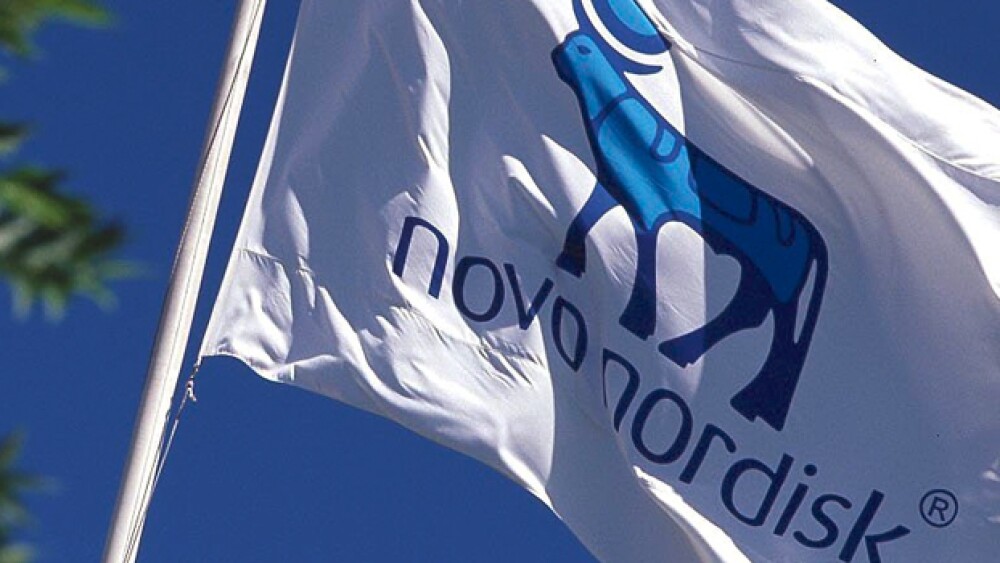Novo Nordisk announced positive results from its ELLIPSE Phase III clinical trial of Victoza (liraglutide) in treating type 2 diabetes in children aged 10 to 17. The company presented the results at the Pediatric Endocrine Society (PES)/Pediatric Academic Societies (PAS) Annual Meeting held in Baltimore, MD, and simultaneously published in the New England Journal of Medicine.
Novo Nordisk announced positive results from its ELLIPSE Phase III clinical trial of Victoza (liraglutide) in treating type 2 diabetes in children aged 10 to 17.
The company presented the results at the Pediatric Endocrine Society (PES)/Pediatric Academic Societies (PAS) Annual Meeting held in Baltimore, MD, and simultaneously published in the New England Journal of Medicine. The drug, when added to metformin, with or without concurrent insulin treatment, significantly reduced A1C levels at 26 weeks, which was the primary endpoint, and 52 weeks, which was the secondary endpoint, compared to placebo.
Victoza is a human glucagon-like peptide-1 (GLP-1) receptor agonist. It was approved by the U.S. Food and Drug Administration (FDA) on January 25, 2010, along with diet and exercise, to help with blood sugar control and to decrease the risk of major adverse cardiovascular events in adults with type 2 diabetes and established cardiovascular disease.
In 2009, Victoza was approved in Europe for adults with insufficiently controlled type 2 diabetes along with diet and exercise, alone when metformin isn’t prescribed, or patients can’t take it or other products.
The ELLIPSE trial looked at 135 children ages 10 to 17. They were randomized 1:1 to receive Victoza up to 1.8 mg/day or placebo, in combination with metformin, with or without basal insulin, for a 26-week, double-blind period. This was followed by a 26-week open label extension to collect more data, in addition to another 52 week off-treatment safety follow-up for people who received Victoza for more than 3 months.
“We are delighted with the ELLIPSE trial results and look forward to discussions with the FDA and EMA about these data for Victoza,” stated Mads Krogsgaard Thomsen, Novo Nordisk’s executive vice president and chief science officer. “These data add to the extensive evidence for the use of Victoza and further cement Novo Nordisk’s commitment to addressing a considerable and growing unmet medical need across the full spectrum of the type 2 diabetes patient population.”
In the trial, patients who received Victoza with metformin had a decreased A1C level of 0.64% at 26 weeks and 0.5% at 52 weeks, compared to 0.42% and 0.8% for patients who received metformin and placebo. The safety profile in the kids was similar to that as seen in adults. The most common adverse events were gastrointestinal events. Others included headache, nasopharyngitis, dizziness, gastroenteritis, upper respiratory tract infection, rash, pyrexia and decreased appetite.
Novo Nordisk submitted the data to the FDA and the European Medicines Agency (EMA) in support of a label extension.
“The prevalence of type 2 diabetes in children and adolescents is increasing, driven by the global epidemic of childhood obesity, yet our treatment options are limited,” stated William Tamborlane, professor and Chief of Endocrinology, Yale School of Medicine and lead investigator of the ELLIPSE trial. “These data represent a potential new treatment option for lowering blood sugar in children and adolescents with Type 2 diabetes.”
Victoza is on the market in more than 100 countries and has been used to treat more than 1.2 million people with type 2 diabetes around the world.





